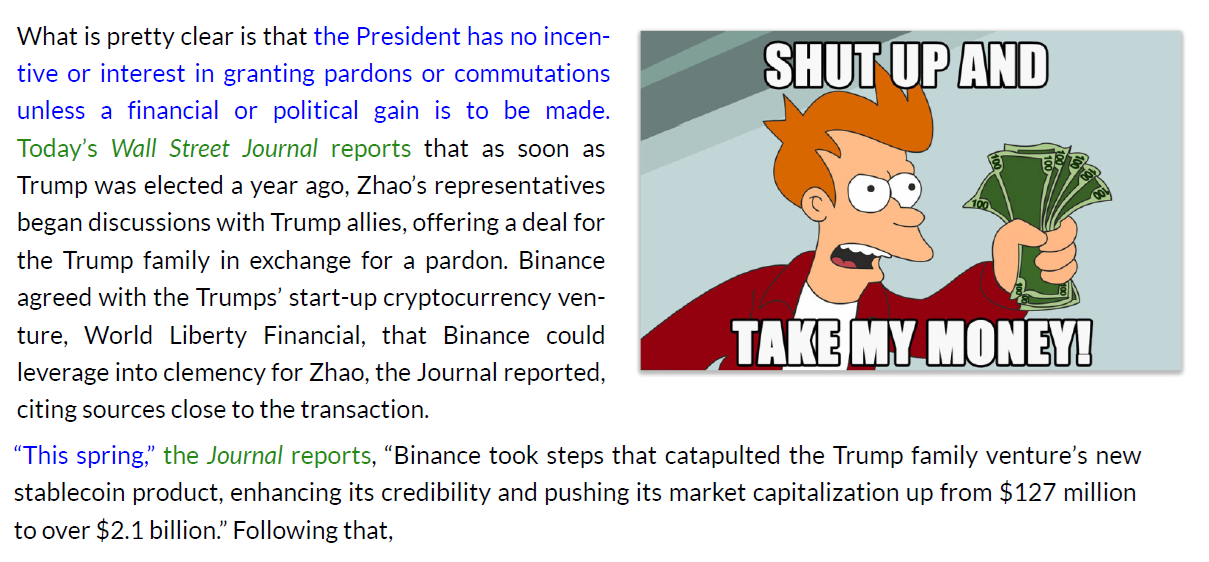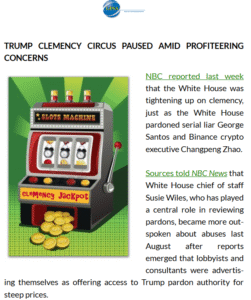Pardons as Instruments of Power: Trump’s Use of Clemency.
Trump’s Efforts to Minimize the January 6th Insurrection.
Jan. 1, 2025 – Nov. 10, 2025
Donald Trump’s approach to presidential clemency marked a sharp departure from historical norms, revealing a pattern in which loyalty and political utility often outweighed justice or rehabilitation. A striking number of his pardons and commutations went to close allies and associates—including Rudy Giuliani, Paul Manafort, and Steve Bannon—individuals whose personal or political connections to Trump were unmistakable.
Legal analysts argue that several of these pardons functioned more as tools to shield the former president and his inner circle from accountability. By extending clemency to figures implicated in investigations such as the Mueller probe, Trump appeared to signal that loyalty would be rewarded—even at the expense of the rule of law.
The political overtones deepened after the 2020 election. Clemency increasingly served as a form of political currency, granted to those who advanced or defended Trump’s efforts to contest the election or minimize the January 6th insurrection.
Equally troubling was Trump’s near-total bypassing of the Department of Justice’s traditional review process through the Office of the Pardon Attorney. By dismantling institutional checks designed to ensure fairness and impartiality, Trump turned what is meant to be a constitutional safeguard for justice into a personal instrument of power and retribution.
d
Trump’s Pardon List: Donors, Allies, and Power Connections
Former President Donald Trump has issued 77 full, complete, and unconditional pardons, a list that prominently features political allies, loyalists, and major donors. Among the recipients are Rudy Giuliani, Mark Meadows, and Sidney Powell—all key figures in Trump’s efforts to overturn the 2020 election results.
Perhaps most striking is the full and unconditional pardon of Changpeng Zhao, the former Binance CEO who pleaded guilty to money laundering charges. Zhao’s company has documented ties to the Trump family’s cryptocurrency ventures, raising further questions about favoritism and the intersection of politics, loyalty, and financial interests.
Critics argue these pardons reflect a pattern of self-serving clemency, aimed at rewarding loyalty rather than advancing justice. Supporters, however, frame them as corrections to political overreach and prosecutorial bias.
J



